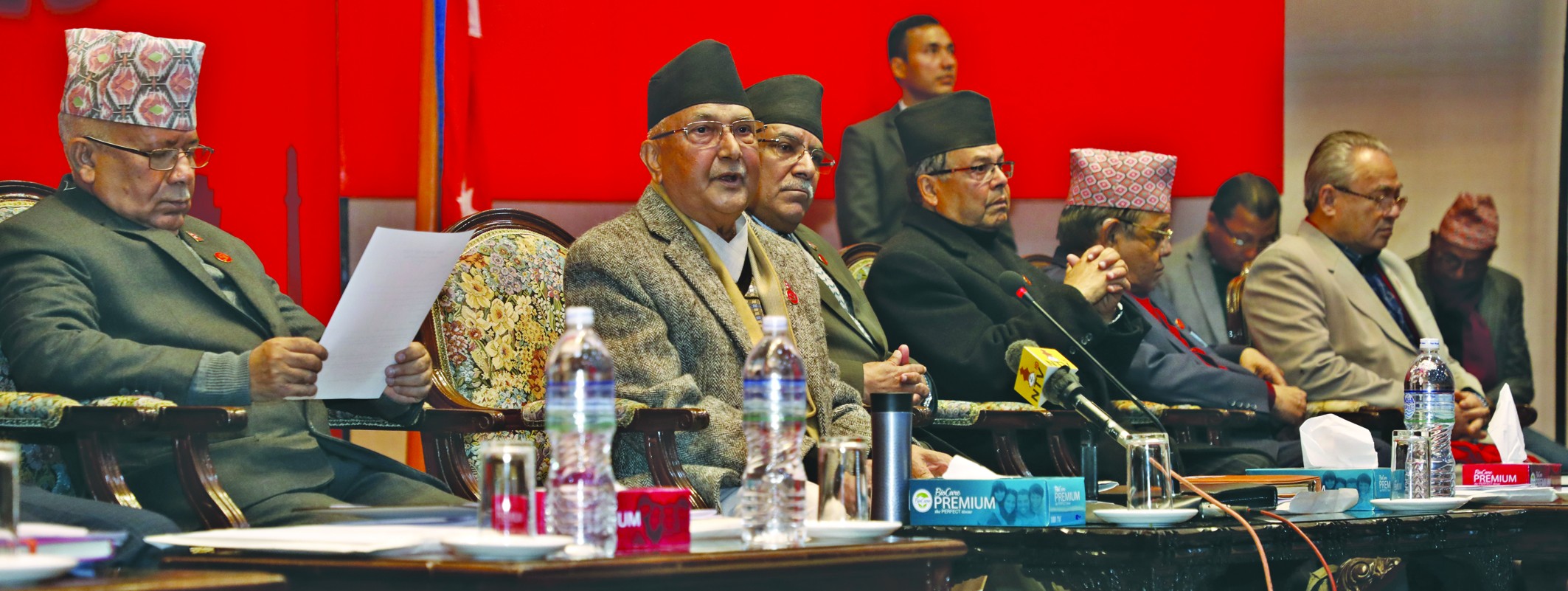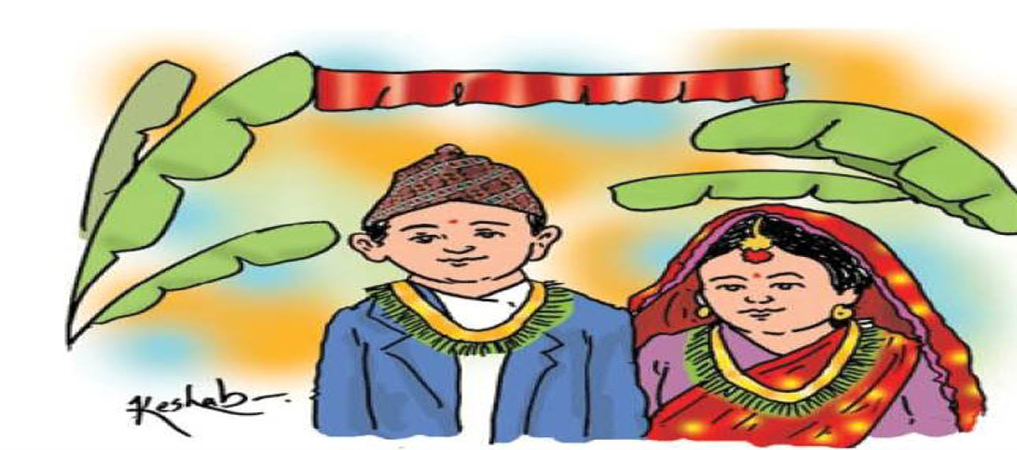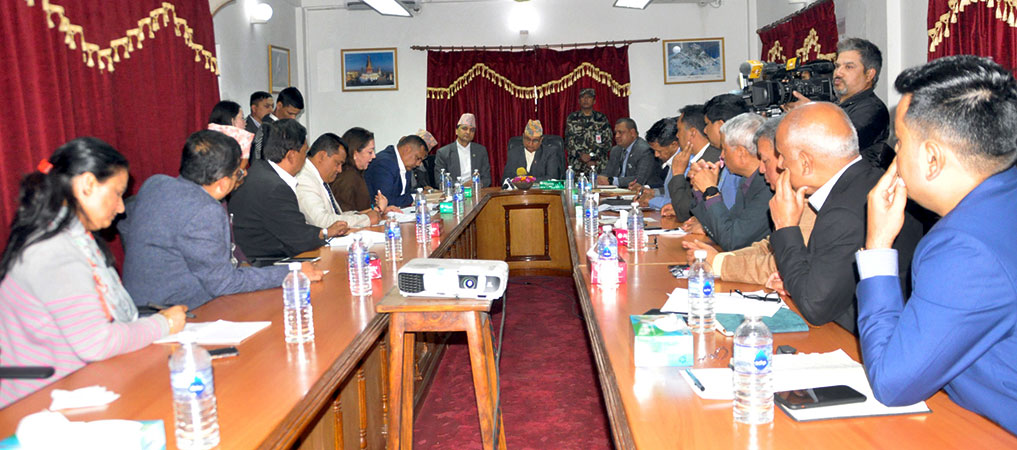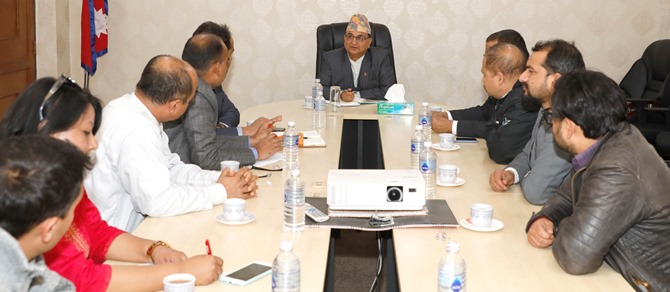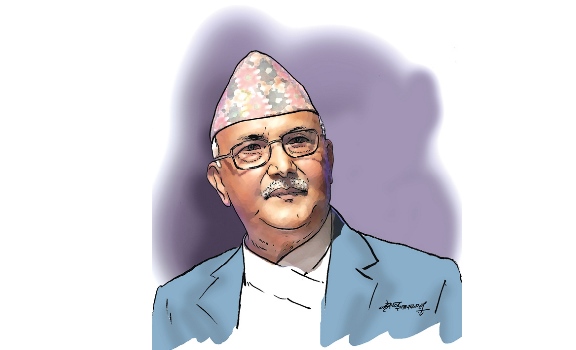This year’s Teej celebrations being organised within close groups
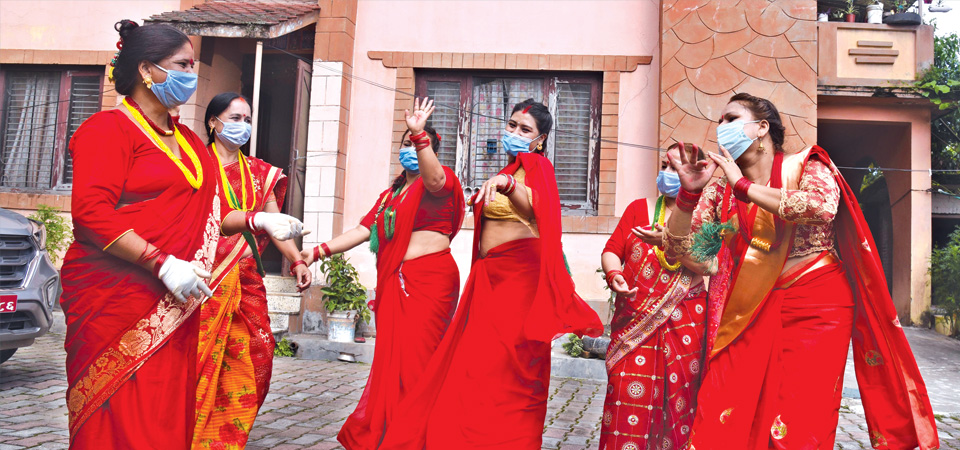
By Arpana Adhikari
Kathmandu, Sept. 9: More open than last year, this year’s Teej celebrations are being organised within closed circles of family members and friends.
The Dar parties taking place before the main Teej festival day, have been limited in close groups. Some of the groups are organising parties in restaurants making sure that the members of the groups were already in regular contacts.
However, no large parties are being held in party palaces due to safety concerns about COVID-19.
Roshana Tripathi, a banker by profession, said, “This was my fifth Dar party this year. One was organised by my office, one by my relatives and the remaining by my close friends at restaurants.”
Dar celebration has been heavily curtailed since last year due to COVID-19 pandemic, said Tripathi adding that if there was no pandemic, then there would have been more and larger parties.
Tripathi and women of her neighbourhood in Pashikot, Kathmandu, decked up in red sari and accessories to attend a Dar feast before Haritalika Teej at her colony on Wednesday afternoon, which was filled with snacks, delicacies, music and dance.
In Tripathi’s neighbourhood, the trend of getting together for Teej started about six years ago. There, every woman – young and old and from all walks of life – gather to enjoy delicious foods, dance, music and also exchange gifts.
Saloni Thapa of Lazimpat shared how she and her female colleagues celebrated Dar party at a restaurant and they have been following this trend for the last five years.
“This is good excuse for women to take some time off from their daily and monotonous routine and socialise. For me, Teej is a celebration of womanhood,” she added.
The festival, which is celebrated mainly by married Hindu women to pray for long life and well-being of their husbands, is no more a cozy and private celebration of the family.
Hindu women across Nepal are celebrating the Teej festival on Thursday this year.
Usually, Dar is a feast that takes place till mid-night before the day of Teej, where women prepare themselves for a day-long fast. It is believed to strengthen women so that they can joyfully complete their fast.
This festival is being observed on a larger scale and celebrated weeks before the day of Teej. Especially, urban women are found following a new trend of throwing parties a month ahead.
Festival spending is no longer just about tradition and home-cooked foods. Lately, urban women have shifted their celebration from home to restaurants. They are spending more in designer clothes, beauty salons, among other fancy things. This has now become a part of the new ritual.
Even the banks, schools, cooperatives, NGOs, INGOs and other offices are found throwing a Dar party for their female staff.
Culture Expert Prof. Beena Poudyal said, “For a long time, the festival remained an occasion where married women share their ordeals and sufferings they face in their husband’s place, through the songs and dance, especially while they visit their parental home.”
She defined how the paradigm of Teej has shifted recently, from being a festival of fasting for husband to women enjoying for themselves and their independency.
Dr. Poudyal said today’s Teej songs were also loaded with the expression of women empowerment.
“Unlike in the past, women are no more confined to the households. They are more educated, independent, politically and economically empowered. More women are now becoming a social being. This is why there is a significant variation in the manner in which Teej is observed,” she said.
Stating that the nature of cultures is that they change over time, Dr. Poudyal said however the true essence of any culture and tradition should not be forgotten and be preserved.
Recent News

Do not make expressions casting dout on election: EC
14 Apr, 2022
CM Bhatta says may New Year 2079 BS inspire positive thinking
14 Apr, 2022
Three new cases, 44 recoveries in 24 hours
14 Apr, 2022
689 climbers of 84 teams so far acquire permits for climbing various peaks this spring season
14 Apr, 2022
How the rising cost of living crisis is impacting Nepal
14 Apr, 2022
US military confirms an interstellar meteor collided with Earth
14 Apr, 2022
Valneva Covid vaccine approved for use in UK
14 Apr, 2022
Chair Prachanda highlights need of unity among Maoist, Communist forces
14 Apr, 2022
Ranbir Kapoor and Alia Bhatt: Bollywood toasts star couple on wedding
14 Apr, 2022
President Bhandari confers decorations (Photo Feature)
14 Apr, 2022


